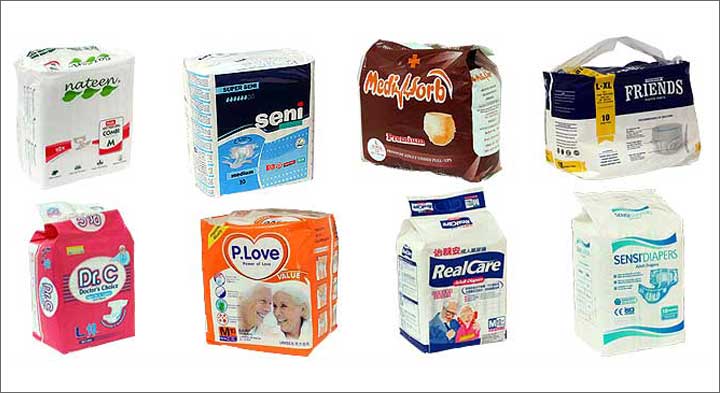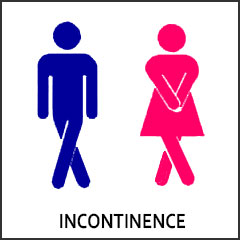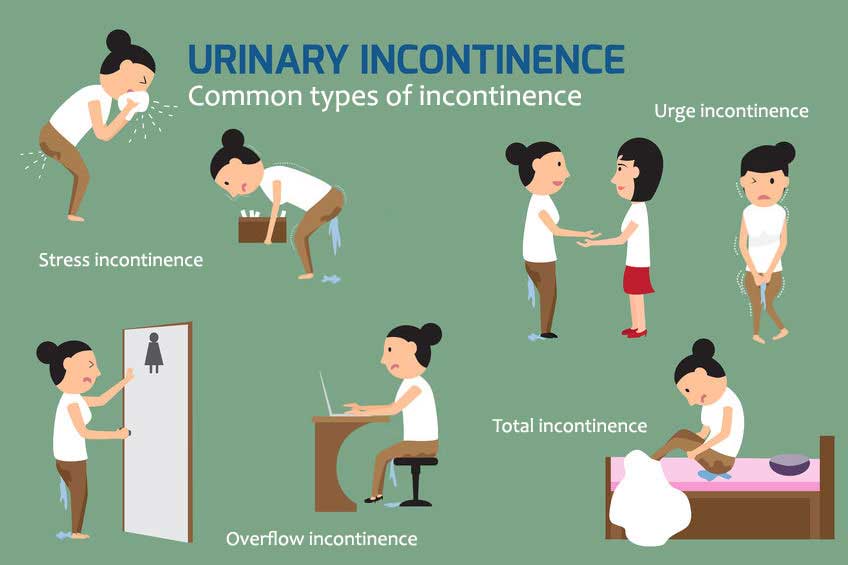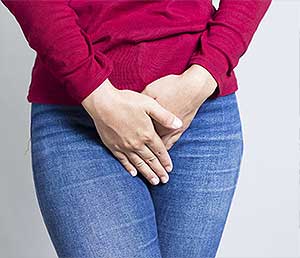 Urinary and Bowel Incontinence
Urinary and Bowel Incontinence
Incontinence is a fairly common problem faced by seniors and elderly patients. Incontinence can be embarrassing at times and inconvenient, especially if you are not in your home. It interferes with daily activities. However, there are incontinence products such as adult diapers and pads can provide you the protection and manage this condition.
What is incontinence?
 “Incontinence” is a term that describes any accidental or involuntary loss of urine (urinary incontinence) from the bladder or bowel (bowel incontinence). Bowel incontinence occurs when there is a loss of control of faeces (liquid stool, or solid stool) or wind from the bowel. This may mean you pass faeces or wind when you don't mean to or experience staining of your underwear.
“Incontinence” is a term that describes any accidental or involuntary loss of urine (urinary incontinence) from the bladder or bowel (bowel incontinence). Bowel incontinence occurs when there is a loss of control of faeces (liquid stool, or solid stool) or wind from the bowel. This may mean you pass faeces or wind when you don't mean to or experience staining of your underwear.
Urinary and bowel incontinence is a much more common problem than you realize; a large percentage of men and women experience incontinence. If you experience chronic urinary or bowel incontinence do not be embarrassed, you are not alone – many people have this condition!
Finally, you do not have to just “live with it”, in this site you will find information to help you understand and manage incontinence with suitable products.
Watch this video - Incontinence – understanding the change - Dr. Kalaivani Ramalingam,MBBS,DGO, MRCOG, CCT(UK), Consultant Urogynaecologist, Chennai Urology Clinic, Apollo Hospitals.
Is incontinence normal in elderly?
Incontinence can happen at any age but generally it is more common in seniors. Almost one out of two women older than 65 experience bladder leakage sometimes. Causes include aging, lifestyle choices, or a range of health conditions.
The following are the most common types of incontinence:
- stress incontinence
- urge incontinence
- overflow incontinence or incontinence associated with chronic retention
- total incontinence

Managing incontinence : some measures to help improve your symptoms
 Lifestyle changes such as losing weight and cutting down on alcohol and caffeine, pelvic floor exercises such as kegel exercises.
Lifestyle changes such as losing weight and cutting down on alcohol and caffeine, pelvic floor exercises such as kegel exercises.
Also, bladder training by learning ways to wait longer between needing to urinate and passing urine, modifying irregular bowel habits by identifying the cause.
You may also benefit from the use of incontinence products, such as adult diapers, absorbent pads and washable underpads.
Managing stress incontinence
This usually occurs during activities that increase pressure inside the abdomen. Activities that induce stress incontinence include sports, walking, lifting, or even laughing, coughing and sneezing. Small amounts of urine leaks during these activities. Pelvic floor muscles exercises also known as Kegel exercises, is very effective in treating bladder leakage. Light Incontinence pads will help until you get full control of your bladder.
Managing urge incontinence
As the name indicates, this type of incontinence induces a sudden and strong need to urinate. Often, urge is so intense that you may leak some urine before you get to the toilet. To manage urge incontinence, bladder training maybe required. Bladder training aims to increase the capacity to hold on without urgently leaking urine. Bladder training involves reducing the degree of urgency by gradually increasing the storage capacity your bladder and preventing accidental leakage of urine. Slowly, increase the period of time between visits to the toilet. It is advisable to consult your doctor about bladder training.
Incontinence Products that can help you
- Light Incontinence pads
- Adult Diaper
- Adult pants-type diaper
- Pull-up Adult Diaper
- Washable Underpads
They come in a broad range of sizes, absorbencies and styles. So, get out and be active again with the right product to manage your urinary incontinence.